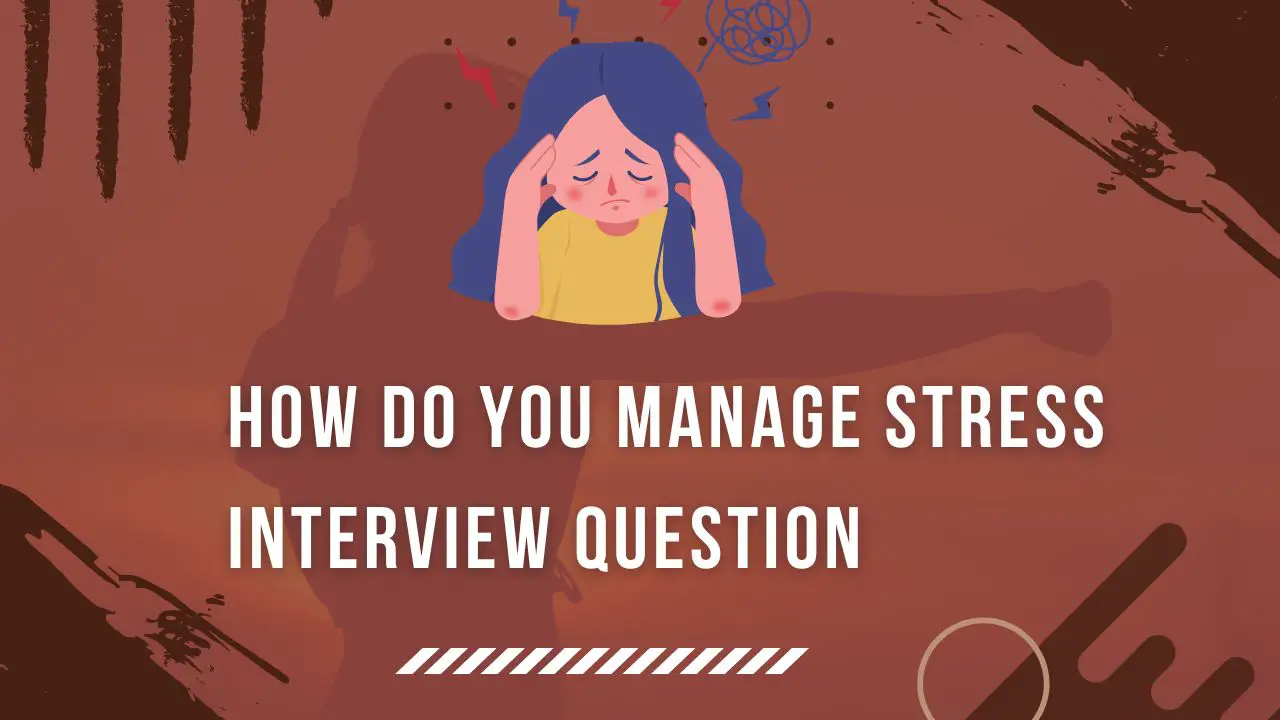In all likelihood, the question of how you respond to pressure and stress will come up during your next job interview. Instead of freaking out, use these suggestions to ensure that your response is perfect.
The most typical interview inquiries are ones that everyone is familiar with: Could you please introduce yourself? Why are you drawn to this position? What are your main advantages and disadvantages? inevitably how do you manage stress?
You might spend less time before your interview practicing for these ostensibly simple questions because they are so prevalent. The solutions must be simple, right? However, the truth is that the interviewer or hiring manager is gaining crucial data from your responses. A poor response or even a poor word may truly turn them off.
Spend some time in advance planning rather than winging the “How do you handle stress?” interview question. When deciding how to respond, consider the following steps:
1. Recognize the purpose behind the interviewer’s question in this employment interview.
Consider why the interviewer or hiring manager is asking the question in the first place before planning your response. A typical behavioral interview question is, “How do you handle and deal with stress?”
How do you manage Stress Interview Question: The purpose of behavioral interview questions is to help the interviewer understand how you respond to various difficult work conditions. You should therefore emphasize your qualifications and provide examples drawn from actual situations. The interviewer will next utilize that data to decide whether you are the best applicant for the job and the organization.
2. Make a list of your soft skills
Make a list of your soft talents before you begin to describe the numerous occasions you have been under pressure or faced stress at work. These are the social skills you employ, among other things, to manage and deal with stress.
You could use the following soft talents to deal with pressure or stress at work:
- Adaptability
- Communication
- management of time
- Organization
- Leadership
- Problem-solving
Although the interviewer is interested in how you dealt with stress and maintained your positive attitude, they are also curious about your soft talents, so keep these in mind.
3. Add context to these skills with a relevant, impactful example
Now that you are aware of the soft talents you might emphasize, begin to recall instances in which you were under pressure or under stress at work. Make careful to keep in mind not to concentrate on instances where you were at fault as you’re going through these examples, even scribbling them down on paper.
Don’t mention, for instance, the time you forgot a project was due the following day. Or the time you took on entirely too many tasks and found it difficult to balance them. Such responses could paint job applicants as forgetful, unreliable, or overly ambitious. Additionally, think about generating two to three instances that correspond to the positions you’re applying for and their necessary qualifications.
4. Focus on your positive actions, not your negative feelings
When it comes to stress, it’s simple to become engrossed in its feelings, such as frustration, worry, and dread. It’s also simple to point the finger at someone else: “My manager didn’t communicate with me clearly,” or “My coworker completely dropped the ball.”
Focus on how you handled the circumstance rather than how you’re feeling or who’s to blame for your stress. Consider your soft skills. Have you been in contact with your group? How did you organize your objectives?
In the end, you’ll make an impression on the interviewer by maintaining a cheerful attitude, avoiding assigning blame, and emphasizing your skills.
5. Don’t deny your stress
Your interviewer won’t believe you if you claim your job doesn’t cause you stress. Or they may believe that you lack emotional intelligence or don’t take your job seriously enough.
If, for whatever reason, you are unable to recollect or provide examples of a specific instance in which you were under pressure at work, concentrate instead on how you handle stress on a regular basis. Do you have a self-awareness and mindfulness practice? Do you make time for a 30-minute lunch break and make an effort to get up from your desk? After work, do you exercise? This information will provide hiring managers and interviewers with a clearer picture of who you are and how you behave both within and outside of the workplace.
The world of job interviews often presents candidates with a seemingly simple yet crucial question: “How do you handle stress?” This inquiry isn’t just a mere formality; your response can provide valuable insight into your ability to remain composed and resilient under pressure. In this blog, we will delve into the art of effectively answering the “How do you handle stress?” interview question, equipping you with strategies and sample answers to excel in your next interview.
Understanding the Significance: ways to manage stress and anxiety
While interview questions like “Can you tell me about yourself?” and “What are your strengths and weaknesses?” are familiar territory, the “How do you handle stress?” question holds unique importance. It provides interviewers with a window into your coping mechanisms, problem-solving skills, and adaptability—qualities that are invaluable in a professional setting. Recognizing the weight of your response is the first step towards mastering this question.
Crafting an Impressive Response: how to manage stress in workplace
- Decipher the Purpose: Before formulating your answer, it’s essential to grasp why interviewers pose this question. The intent is to assess your behavior in high-pressure situations, evaluating how you manage stress and continue to deliver results. Understanding this motive will guide your response.
- Identify Soft Skills: Soft skills are the interpersonal attributes that play a pivotal role in managing stress effectively. Skills such as adaptability, communication, time management, problem-solving, and leadership can be highlighted to showcase your ability to handle stress.
- Leverage Real-Life Examples: As you consider past experiences, select instances where you’ve successfully navigated stress at work. Opt for examples that demonstrate your strengths and align with the skills required for the position you’re interviewing for.
- Utilize the STAR Method: Structure your answer using the STAR method: Situation, Task, Action, and Result. Begin by outlining the situation that called for your stress management skills, describe the task at hand, explain the actions you took, and conclude with the positive outcome achieved through your approach.
- Focus on Positive Actions: Rather than dwelling on negative emotions, emphasize the actions you took to overcome stress. Describe how you communicated, strategized, collaborated, and executed to achieve a favorable outcome.
Sample Answers: How do you handle stress and pressure?
- Effective Project Management: “I recently faced a challenging situation when I was assigned a last-minute project. Instead of succumbing to panic, I took a moment to create a structured plan, mapping out each step. Open communication with my team and manager played a crucial role. I regularly updated them on progress and addressed any hurdles promptly. As a result, we completed the project on time, and our client was extremely satisfied.”
- Proactive Client Resolution: “Stress doesn’t deter me; I channel it into action. Once, when a client expressed dissatisfaction with our product, I initiated open dialogue to understand their concerns. Instead of dwelling on the negative feedback, I collaborated with my team to identify solutions. By addressing the issue, troubleshooting, and finding common ground, we not only resolved the problem but also improved our client relationship.”
- Self-Imposed Deadlines: “I’ve found that a healthy dose of stress fuels my productivity. I proactively set personal deadlines to ensure timely completion of tasks. For instance, if a project lacks an official deadline, I create one for myself. This practice sharpens my focus and maintains my performance at its peak.”
Conclusion:
Navigating the “How do you handle stress?” interview question requires more than mere spontaneity. By comprehending the interviewer’s intent, emphasizing soft skills, citing relevant examples, focusing on positive actions, and utilizing the STAR method, you can craft an impactful response. Remember, your ability to manage stress effectively speaks volumes about your professionalism and adaptability—a message you want to convey to potential employer



